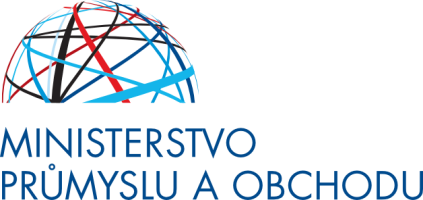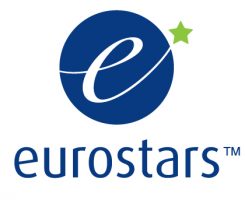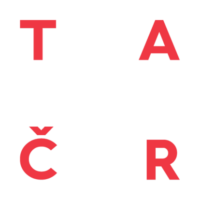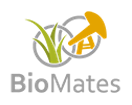Funded Research
Below you can find all the projects we have taken part of.
eQATOR Project
Building biogas reactors to make cleaner synthetic fuels
Using renewable power sources for the industrial production of chemicals from renewable carbon sources could reduce CO2 emissions significantly. The EU-funded eQATOR project plans to show how biogas could play such a role, by developing scalable catalytic reactor technology for the conversion of biogas to syngas. The reactor will be electrically powered and more efficient than existing tech, enabling conversion into higher-value products such as methanol, hydrogen, and synthetic fuels. The efficiency gains will be demonstrated by electrically heating the catalyst, either by resistive or microwave heating. Implementation of the eQATOR technology is estimated to decrease life-cycle CO2 emissions for syngas production by 60-80 % and save from 7 Mt CO2/year in 2030 to 45 Mt CO2/year in 2045.
Catalysis of Phase-change materials for Sustainable Heat Accumulation in Buildings
The goal of the project is the development of a suitable catalytic substance for the synthesis of energy gas on PCM. The project concept is based on the use of available materials and renewable energy sources for the production of alternative carbon waxes, the purpose of which will be to increase thermal comfort in buildings.
Programme DELTA 2, Project number: TM05000058
Innovative catalysts for home stationary combustion sources
The aim of the project is the research of an innovative catalyst based on active elements V2O5, WO3, TiO2 instead of commercially used Pt and Pd ones with its subsequent use for catalytic cleaning of flue gas produced during the biomass combustion in stationary combustion sources up to 300 kW of heat output commonly used for household heating.
Programme SIGMA, Project number: TQ03000511
A highly advanced catalyst for the transformation of methanol into hydrocarbons for the reliable production of e-gasoline
The aim of the project is to develop the structure and technology of production of a new generation of high-performance catalyst for the process of transformation of methanol into modern and sustainable fuels. Specifically, the project aims to develop nanostructured hierarchical zeolitic catalyst for the transformation of methanol to a C4-C10 hydrocarbon fraction with a high content of branched alkanes and cycloalkanes with a high octane number. The catalysts will be characterized by high activity stability, regenerability and structural stability, and will allow economic transformation of methanol to C4-C10 with high atomic selectivity.
This project is supported by the Technology Agency of the Czech Republic and the Ministry of Industry and Trade of the Czech Republic as part of the TREND Program. This project and its outcome is financed under National Recovery Plan from the European Instrument for Recovery and Resilience Facility.
Programme TREND, Project number: FW10010328
Sustainable Catalytic Synthesis of Atmospheric Carbon and Green Hydrogen to Light Alcohols
The main objective of this project is the development of a new catalytic material as a key active component for the synthesis of light alcohols (methanol/ethanol). The fundamental idea is to use atmospheric CO2 and sustainable H2 in catalytic synthesis as a tool to increase the decarbonisation intensity of the energy and industrial sectors.
Programme THETA 2, Project number: TS01030175
Design and development of a microreactor system for ammonia decomposition as part of a small energy vector for mobile autonomous energy sources
This project deals with the design and development of a key Hydrogen Energy Vector (HEV) technology, the catalytic decomposition of NH3 (ammonia), at the level of small devices providing hydrogen for a fuel cell in the power range of approximately 0.2 to 1 kW. Ranido has the task to design, develop and test a suitable catalyst for this system.
Programme THETA 2, Project number: TS01030200
Development of the structure and production process of a nanostructured advanced methanation catalyst for power-to-gas technologies
The goal of the project is the development of the structure and production technology of a new generation of high-performance methanation catalyst for the process of transforming CO2 and green H2 into synthetic natural gas.
Programme THETA 2, Project number: TS01030146
Circular Fuels
Circular Fuels is a Horizon 2020 project dedicated to generating renewable fuels from biomass, such as wood and agricultural residues.
This involves feeding biomass into a solar pyrolysis unit to produce pyrolysis oil, which will then be stabilized and enhanced. These fuels are intended for future use as a sustainable fuel source, specifically targeting the aviation industry.
Fuel-Up
FUEL-UP is a Horizon 2020 project dedicated to producing advanced biofuels for the aviation and marine industries. The project focuses on converting biomass from wood waste, logging, and processing residues into pyrolysis oil, which will then be stabilized for use as a sustainable fuel source.
Finished Projects
Hydroisomerization catalysts based on zeolites
The subject of the project is to verify the technical feasibility and commercial potential of the idea of using optimized hydroisomerization catalysts based on zeolites for application in the refining industry.
Project number: CZ.01.1.02/0.0/0.0/19_265/0021089

Testing catalysts for the low-temperature decomposition of ammonia into hydrogen
The project deals with the research of catalysts for H2 production by catalytic decomposition of NH3. The aim is to evaluate the activity and stability of several types of catalysts for the low temperature decomposition of NH3 and to assess their potential for the industrial use of NH3 as a medium for H2 transport.
Project number: CZ.01.1.02/0.0/0.0/20_358/0028021

BL2F: Black Liquor to Fuel
Black Liquor to Fuel (BL2F) is a Horizon 2020 project that will use “Black Liquor“ to create a clean, high-quality biofuel. Black liquor is a side-stream of the chemical pulping industry that can be transformed into fuel, reducing waste and providing an alternative to fossil fuels.
BioMates Project
The BioMates project aspires in combining innovative 2nd generation biomass conversion technologies for the cost-effective production of bio-based intermediates (BioMates) that can be further upgraded in existing oil refineries as renewable and reliable co-feedstocks. The resulting approach will allow minimisation of fossil energy requirements and therefore operating expense, minimization of capital expense as it will partially rely on underlying refinery conversion capacity, and increased bio‐content of final transportation fuels.
INO-EX
The project aims to create a unified visual identity of the company, which will be applied to all communication channels of the company. The goal of the project is to consolidate the form and character of the company’s brand in the subconscious of the customers and thus improve the company’s position on the market.

The development of catalyst for decomposition of gas phase H2O2
The project will develop a catalyst that will be used to decompose the H2O2 gas phase used for sterilisation in the pharmaceutical and food industries.
Project number: CZ.01.1.02/0.0/0.0/17_102/0011542

Development of environmentally friendly hydrogenation catalysts
The goal of the project is to create a new catalyst that no longer contains chromium. This new catalyst should offer the same stability, activity and lifetime as the currently used copper-chromium catalyst.
This project is implemented with financial support from the state budget through the Ministry of Industry and Trade in the TRIO program.
Development of a low concentration gas phase H2O2 detector
The subject of the project is to use the expertise of a graduate of the Master’s degree in the development of a detector for measuring the concentration of the gas phase H2O2.
Project number: CZ.01.1.02/0.0/0.0/15_013/0004957


Characterization of industrial heterogeneous catalysts containing chromium
The project focuses on the detailed physic-chemical characterization of heterogeneous chromium-containing catalysts.
Project number: CZ.07.1.02/0.0/0.0/16_025/0000605

Development of a Cu/Bi catalyst for production of 2-butyne-1,4-diol by Reppe ethynylation process
Development of a new process for catalyst production on butyn-1,4-diol using the Reppe process.
Development of a new technology for catalyst preparation that allows easier customization of the catalyst to meet specific customer needs.
More >
















